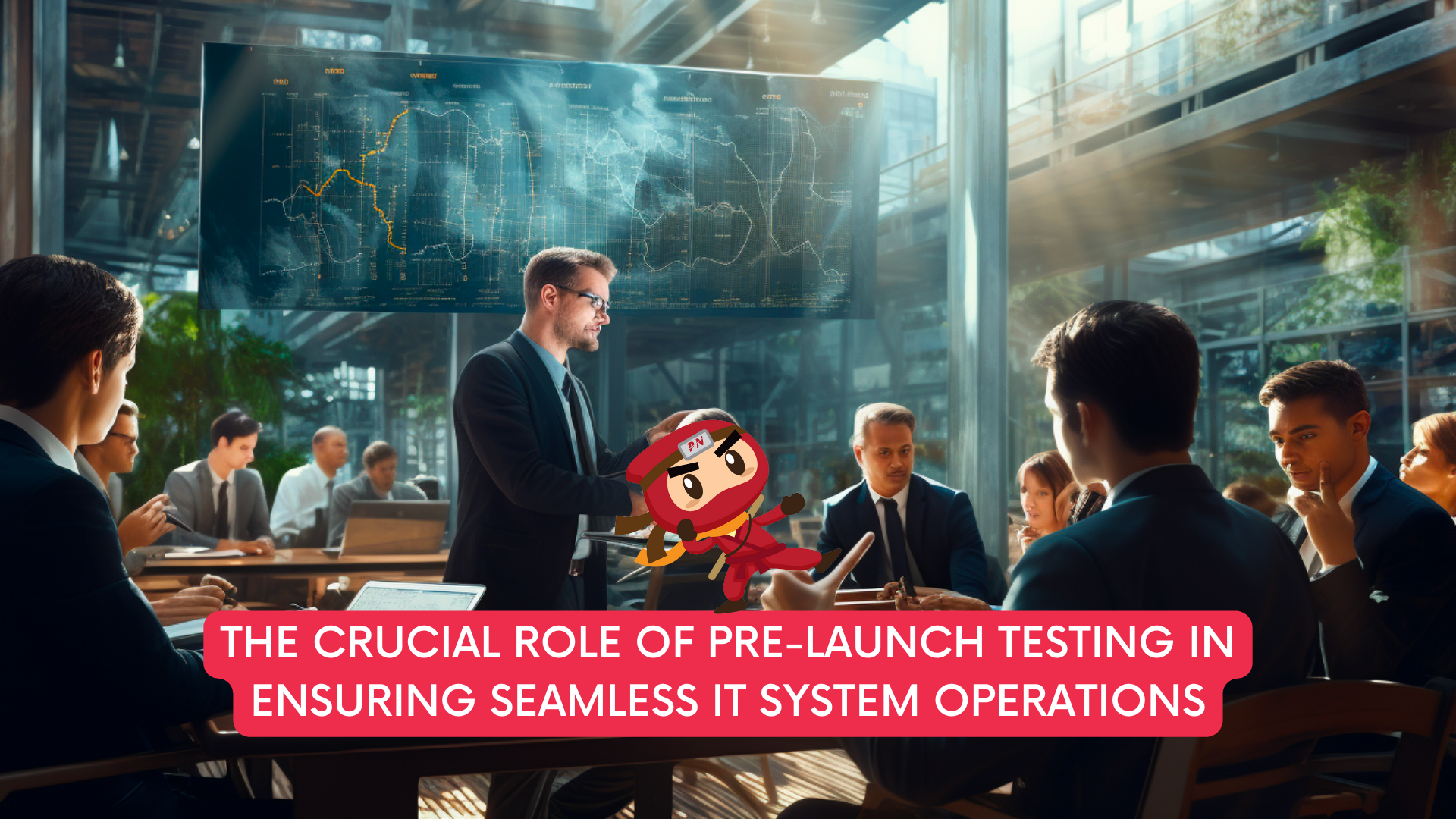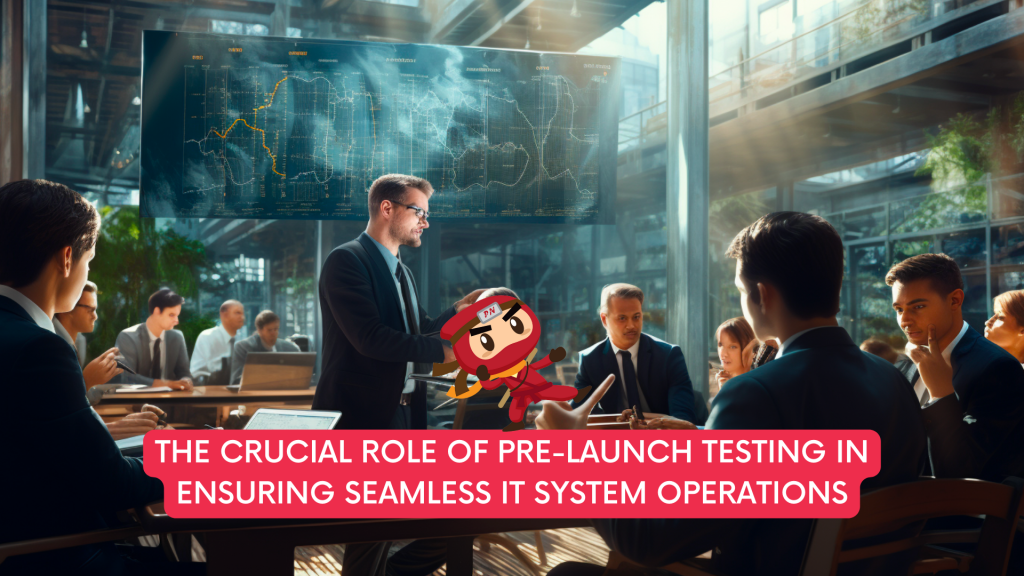KEEP IN TOUCH
Subscribe to our mailing list to get free tips on Data Protection and Cybersecurity updates weekly!







Where the implementation of new IT systems or modifications to existing ones is a common occurrence, the importance of thorough pre-launch testing cannot be overstated. Prior to the rollout of a new IT system or any adjustments to an existing one, conducting meticulous pre-launch testing is imperative. This critical testing phase plays a pivotal role in assessing and ensuring that the system will operate seamlessly as anticipated, safeguarding against potential disruptions and ensuring optimal performance.
Implementing a new IT system or introducing modifications to an existing one represents a significant investment of resources, time, and effort for any organization. The success of such endeavors hinges on the reliability and functionality of the system in real-world scenarios. This is where pre-launch testing emerges as the foundation of success.
The primary objective of pre-launch testing is to identify and rectify potential issues before the system is deployed into the live environment. Whether it’s a software application, a network infrastructure upgrade, or a complete overhaul of existing systems, comprehensive testing is the linchpin that ensures a smooth transition and minimizes the risk of unexpected challenges post-implementation.

One of the key aspects of pre-launch testing is the emphasis on comprehensiveness. Testing should encompass all conceivable scenarios to guarantee the system’s functionality under diverse conditions. This includes stress testing to assess how the system performs under heavy loads, security testing to identify vulnerabilities, and compatibility testing to ensure seamless integration with existing infrastructure.
By simulating a variety of scenarios, from peak usage times to potential security breaches, organizations can gain a comprehensive understanding of the system’s capabilities and limitations. This proactive approach significantly reduces the likelihood of unexpected issues arising once the system is live, enhancing overall reliability and user satisfaction.
The repercussions of overlooking pre-launch testing can be substantial. System failures, downtime, and unexpected glitches can lead to a loss of productivity, damage to reputation, and financial losses. Moreover, user frustration resulting from a suboptimal experience can have long-lasting negative effects.
Thorough testing allows organizations to identify and address potential risks proactively, mitigating the likelihood of system failures. It also provides an opportunity to refine the user experience, ensuring that the system meets or exceeds user expectations. Investing in pre-launch testing is, therefore, an investment in the long-term success and sustainability of the IT infrastructure.
To maximize the effectiveness of pre-launch testing, organizations should adopt best practices that align with industry standards. This includes establishing clear testing objectives, creating comprehensive test cases, involving key stakeholders in the testing process, and incorporating feedback loops for continuous improvement.
Additionally, organizations should consider the use of automated testing tools to streamline the testing process, increase efficiency, and reduce the margin for human error. Automation not only accelerates the testing phase but also enables organizations to conduct repetitive and complex tests consistently.

In conclusion, prior to the implementation of a new IT system or any modifications to an existing one, thorough pre-launch testing is not just advisable – it’s imperative. The success of technological advancements hinges on the reliability, functionality, and seamless operation of these systems. By emphasizing the importance of comprehensive testing, encompassing all conceivable scenarios, organizations can ensure that their IT systems not only meet but exceed expectations, providing a solid foundation for innovation, growth, and success in the digital era.
Your appointed DPO can work with you on your PDPA compliance, ensuring that there will be policies in place to make sure that the handling of personal data is PDPA compliant.
A Data Protection Officer (DPO) oversees data protection responsibilities and ensures that organisations comply with the Personal Data Protection Act (PDPA). Furthermore, every Organisation’s DPO should be able to curb any instances of PDPA noncompliance as it is the officer responsible for maintaining the positive posture of an organisation’s cybersecurity.
DPOs complement organisations’ efforts to ensure that the organisation’s methods of collecting personal data comply with the PDPA. It also ensures that policies are set in place to make sure that there will be no instances of data breaches in the future.
Don’t wait any longer to ensure your organisation is PDPA compliant. Take our free 3-minute PDPA Compliance Self-audit checklist now, the same “secret weapon” used by our clients to keep them on track. Upon completion, we will send you the results so you can take the necessary action to protect your customers’ data. Complete the free assessment checklist today and take the first step towards protecting your customers’ personal data.